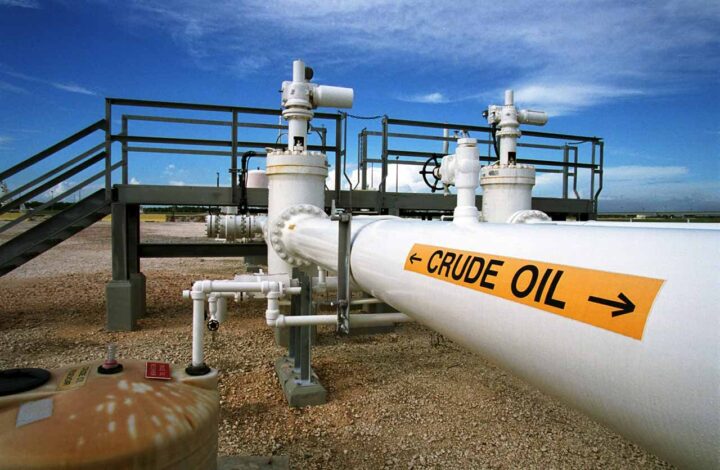Oil prices rose on Tuesday after the European Commission (EU) countries agreed to ban 90 percent of Russian oil imports by end of 2022.
Brent crude futures, the global oil benchmark, was up by 1.64 percent, trading at $123.7 a barrel, while US West Texas Intermediate crude futures climbed 3.21 percent, at $118.8 a barrel.
On Monday, the EU announced its agreement to ban 90 percent of Russian oil imports by the end of the year as part of sanctions against Moscow for invading Ukraine.
The agreement resolves a deadlock after Hungary initially held up talks for an immediate ban.
Advertisement
But in a tweet on Monday, Charles Michel, president of the European Council, said the move would immediately halt 75 percent of Russian oil imports.
“The sanctions will immediately impact 75 percent of Russian oil imports. And by the end of the year, 90 percent of the Russian oil imported in Europe will be banned,” Michel had tweeted.
Similarly, at the EU meeting in Brussels on Monday, Ursula von der Leyen, EU’s president, said oil delivered by sea would be banned, while an exemption will be made for oil imports by pipeline.
Advertisement
She said the exemption was crucial to “bring landlocked Hungary on board”, a decision that required consensus.
“As we have a clear political statement by Poland and Germany that they will, as the others, wind down Russian oil, until the end of the year,” she had said.
“We have covered overall 90 percent of Russian oil being winded down during this time frame. Leftover is the roundabout 10 or 11 percent that is covered by the southern Druzhba. We have agreed for the moment being for an exemption.”
According to Eurostat, Russia is the leading supplier of natural gas, oil, and coal to the EU — purchasing 24.4 percent of its energy needs from Russia in 2020.
Advertisement
The ban could further heighten worries over an already-tight energy market.
Earlier in the month, the EU had announced that it would stop importing Russian oil in the next six months.
Add a comment






